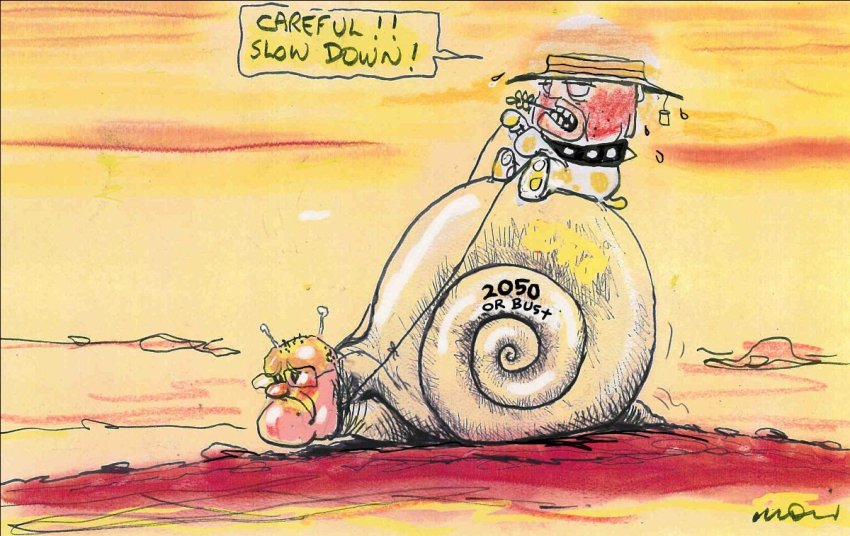
As Prime Minister Scott Morrison wipes the egg from his face following his dismal performance at COP26, climate campaigners are left wondering if he will do anything to reduce greenhouse gas emissions before 2050.
The federal government appears to be unrepentant in its commitment to a post-pandemic gas-led recovery. Gas infrastructure and mining were pivotal to the October 2020 budget.
This was despite reports, such as The Australia Institute’s Gas Fired Backfire, that warned spending public money to expand gas was wrong — both for the COVID-19 recovery and the climate.
Research by Mark Ogge and Tom Swann, published in July last year, found the gas industry would not provide many jobs, being one of the least labour intensive industries in Australia. They also found that developing the industry would not bring down energy prices, which are set on the international market.
Ogge and Swan argued that spending money on renewable electrification is the only way to improve the manufacturing industry, and reduce energy costs and emissions.
These days, this is hardly a radical view.
The Morrison government continues to champion gas, despite the Climate Council, among other institutions, showing proof that fossil gas causes harm and its emissions are under-reported.
Methane, the main component of “natural” gas, is a greenhouse gas nearly 100 times more potent than carbon dioxide in the short term.
Why is Morrison so committed to gas?
Supposedly, we have a shortage and it is needed as we transition to renewables.
This is the line Viva Energy is repeating while it attempts to convince sceptical locals of its plan to build a new floating gas terminal in Geelong that will receive liquefied natural gas by ship.
Australia already produces more than enough gas for its own use. Since 2015, big energy companies have been exporting gas through Gladstone in Queensland.
Viva’s claim is based on outdated estimates of a shortfall over Winter in 2023, as gas production in the Bass Strait was forecast to decline.
However, the most recent forecast from the Australian Energy Market Operator found there would be enough gas until 2026 at least. By then, it forecast gas demand could be much lower because of the take-up of renewables.
The 2021 Victorian Gas Planning Report forecast the state’s annual total gas consumption could drop by more than 12% by 2025.
Again, why is Morrison so committed to gas?
It comes down to the narrow vested interests of this reactionary government and its dinosaur mates in the National Party.
This means that to force a change, we need to step up the push to transition away from fossil coal and gas. We need grassroots pressure to stop the millions being spent in public subsidies to gas companies and to demand that federal recovery funding assistance — our taxes — go to the renewable electrification of many processes, including the manufacture of public transport.
Globally, sections of capital are starting to invest in renewables and clean technologies. But we cannot leave it to the private market.
We need the shift to be rapid and it has to be coordinated, also to ensure that no worker is left behind.
Unlike the big business media, Green Left will continue to push for climate solutions for the 99%. Capitalism, the profit-above-all-else system, created the mess we are currently in.
The only real hope for humanity and the planet is to address the needs of the 99% who create the wealth.
We also need you to become a supporter and make a donation if you can so we can keep putting out our “people and planet before profit” message.